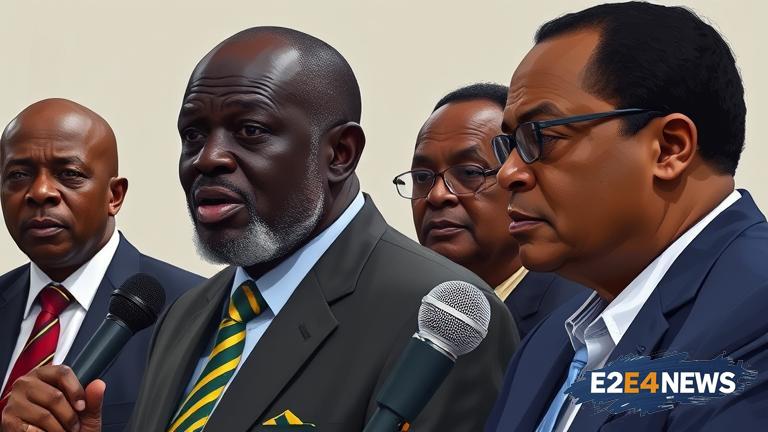Ugandan opposition leaders have expressed concerns over a recent deal between the Ugandan government and the United States to receive deportees from the US. The deal, which was announced earlier this week, has sparked controversy among opposition figures who are questioning the terms of the agreement and the potential implications for human rights in the country. According to reports, the US has agreed to deport individuals who are not eligible to remain in the country, including those who have been convicted of crimes or have overstayed their visas. However, opposition leaders are arguing that the deal does not provide sufficient safeguards to ensure that the deportees are treated fairly and humanely upon their return to Uganda. They are also concerned that the deal may be used as a means of silencing dissenting voices and suppressing opposition to the government. The opposition leaders are calling for greater transparency and accountability in the implementation of the deal, and are urging the government to ensure that the rights of the deportees are protected. The deal has also sparked concerns among human rights groups, who are warning that the deportees may face persecution or violence upon their return to Uganda. The Ugandan government has defended the deal, arguing that it is necessary to ensure the country’s security and stability. However, the opposition leaders are arguing that the deal is a threat to the country’s democracy and human rights. The controversy over the deal has highlighted the tense relationship between the Ugandan government and the opposition, and has raised concerns about the country’s commitment to human rights and the rule of law. The opposition leaders are vowing to continue to speak out against the deal and to advocate for the rights of the deportees. They are also calling for international pressure to be brought to bear on the Ugandan government to ensure that it upholds its human rights obligations. The deal has also sparked concerns among the Ugandan diaspora community, who are warning that the deportees may face difficulties reintegrating into society upon their return to Uganda. The community is calling for greater support and resources to be provided to the deportees to help them rebuild their lives. The controversy over the deal has also highlighted the need for greater cooperation and dialogue between the Ugandan government and the opposition. The opposition leaders are arguing that the deal is a symptom of a broader problem of poor governance and lack of accountability in the country. They are calling for reforms to be implemented to ensure that the government is more transparent and accountable to the people. The deal has also sparked concerns about the potential impact on the country’s economy and development. The opposition leaders are arguing that the deal may deter investment and hinder economic growth, and are calling for alternative solutions to be explored. The controversy over the deal has also raised questions about the role of the international community in promoting human rights and democracy in Uganda. The opposition leaders are calling for greater international pressure to be brought to bear on the Ugandan government to ensure that it upholds its human rights obligations. The deal has also sparked concerns about the potential impact on the country’s relations with the US and other Western countries. The opposition leaders are arguing that the deal may damage Uganda’s reputation and relationships with its international partners, and are calling for a rethink of the country’s foreign policy. The controversy over the deal has also highlighted the need for greater awareness and education about human rights and the rule of law in Uganda. The opposition leaders are calling for greater efforts to be made to promote human rights and democracy in the country, and are urging the government to take steps to ensure that the rights of all citizens are protected.
